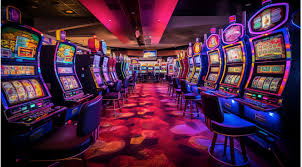
Traditional Betting Practices in Pakistan
In Pakistan, offline gambling has a long history, with traditional betting practices rooted in the culture and local communities. Cricket, being the most popular sport in the country, has historically attracted significant offline betting. This type of betting typically occurs in informal settings, such as small shops, social gatherings, or even within close-knit family and friend circles. These betting practices are often informal, with little oversight, and can sometimes be linked to underground gambling networks. People place bets on various sports events, particularly cricket matches, using either cash or informal IOUs, reflecting the widespread and persistent nature of gambling in Pakistan, despite its illegality in formal settings.
Horse Racing and Street Betting
In addition to sports betting, another significant form of offline gambling in Pakistan is horse racing, particularly in cities like Karachi, Lahore, and Rawalpindi. The Royal Palm Golf and Country Club in Lahore, and the Karachi Racecourse, for example, have historically been hotspots for horse racing events that attract crowds eager to place bets on the horses. While horse racing is technically legal in some parts of Pakistan, many betting activities occur outside the formal structure, in a manner that is often unregulated. Street betting, which includes betting on various local events and competitions, also persists in many parts of the country, especially in rural or semi-urban areas, where it has become ingrained in local culture despite legal restrictions.
The Emergence of Modern Casinos
In recent years, there has been a gradual emergence of more formal, albeit still limited, casino-style gambling in Pakistan. While casinos are technically illegal under the country’s laws, some upscale venues and hotels have begun offering gambling services in a somewhat discreet manner. These establishments are often privately operated, and access is usually restricted to members or invitees, allowing them to circumvent legal scrutiny. The growing demand for a more regulated and accessible gambling experience has led to some interest in establishing legitimate casino operations, though these are still a rarity and operate in a legal gray area. Modern casinos typically offer games like blackjack, roulette, and slot machines, catering to the growing affluent class who seek more sophistication in their gambling experiences.
Legal and Regulatory Challenges
Despite the growing interest in both traditional and modern gambling activities, Pakistan’s legal framework remains restrictive when it comes to gambling. The government has long prohibited most forms of gambling under the Prevention of Gambling Ordinance of 1977, citing concerns about the potential for addiction, crime, and social harm. This legal environment creates a significant challenge for both gamblers and businesses looking to operate within the industry. While some forms of gambling, such as horse racing, have managed to survive in a regulated capacity, most forms of offline gambling take place in underground or informal settings, where players and operators face legal risks. The lack of clear legal guidelines for the industry leaves many gambling activities in a gray zone, and it remains to be seen whether the government will choose to regulate the sector more formally in the future.
The Future of Offline Gambling in Pakistan
The future of offline gambling in Pakistan is uncertain, but it is clear that the demand for both traditional betting and modern casino experiences is growing. As the digital landscape evolves and online gambling gains popularity, the offline sector may face further challenges in competing with the convenience and variety offered by digital platforms. However, the cultural attachment to traditional forms of betting, particularly sports betting and horse racing, suggests that offline gambling will continue to thrive in some form for the foreseeable future. If Pakistan were to adopt a more regulated and transparent approach to gambling, it could provide a safer, more structured environment for both players and businesses. A regulated offline gambling industry could not only generate significant revenue but also contribute to job creation and economic development, while ensuring that players enjoy a fair and secure gambling experience.


